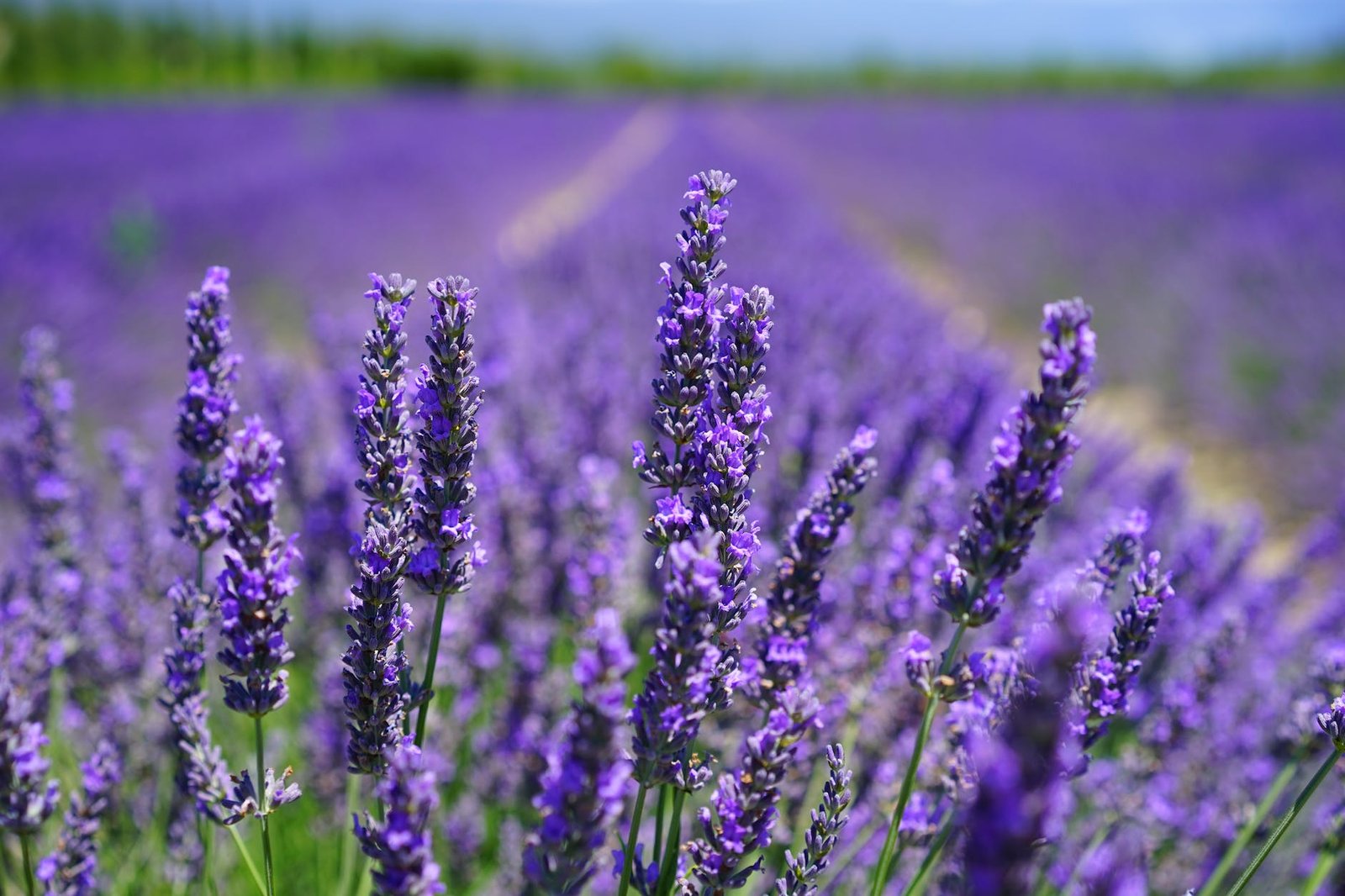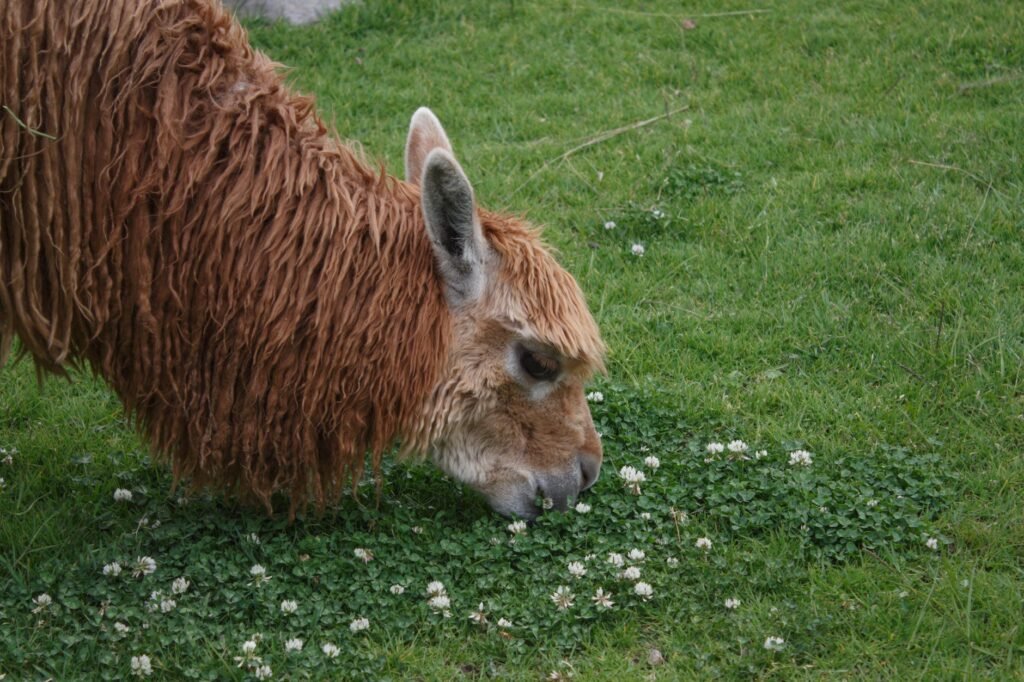Do Alpacas Really Eat Lavender
Ever wondered what’s on the menu for those adorable alpacas? Well, I’ve got your curiosity covered. We’re diving into the intriguing world of alpaca diets, specifically focusing on a fragrant favorite – lavender.
Alpacas are known for their diverse dietary habits, but the question is – do they fancy lavender? Let’s explore this together, considering factors like nutritional needs, taste preferences, and potential health implications. Stay tuned as we unravel the mystery behind alpacas and lavender.
Key Takeaways
- Alpacas are primarily herbivores and their dietary needs primarily consist of a wide variety of vegetation, such as grass, hay, leaves, bark, and occasional fruits which provide them with the necessary carbohydrates, proteins, and fiber.
- Alpacas’ diets don’t typically include lavender. While intrigued by its aroma and taste, alpacas rarely eat lavender and it is not a nutrient-rich plant to satisfy their bodily needs.
- Although lavender isn’t toxic to alpacas, consistent consumption can lead to health issues such as loss of appetite, bloating, oral irritations, or even a potentially lethal condition, rumen acidosis.
- Lavender doesn’t match the nutritional profile needed by an alpaca for optimal health, as it is relatively low in protein and fiber.
- While alpacas may occasionally sample lavender out of curiosity, it doesn’t form a consistent part of their diet or satisfy their unique dietary requirements.
- It’s best to stick with tried and true feeding methods for alpacas, ensuring their diet is balanced and dominated by natural grasses, supplemented with hay and a selection of other nutritious plants.
Alpaca Diets: A Closer Look
One crucial aspect to consider when raising alpacas is their diet. These regal creatures hail from South America, evolved over thousands of years to thrive on a strict diet. Their unique dietary needs make them different from most farm animals you might be used to.

Alpacas are primarily herbivores, meaning they rely on plants for nourishment. They enjoy a wide variety of vegetation – everything from grass, hay, and leaves, to stems, bark, and occasional fruits. This spectrum fulfils their need for carbohydrates, proteins, and fiber. Unlike ruminants such as cows, alpacas possess a three-compartment stomach, which helps them break down tough plant materials efficiently.
Since these creatures are adapted to survive in harsh environments in the high Andes, they are quite efficient in extracting nutrition from low-quality forage. So, a diet high in poor nutritional quality meals won’t impact their health negatively.
Let’s peek into the Alpaca dietary table:
| Nutrient | Requirement (Daily) | Source |
|---|---|---|
| Water | ~10 liters | Freshwater source |
| Protein | ~10% of diet | Alfalfa, hay |
| Fiber | ~30% of diet | Pasture, hay |
| Carbohydrates | ~60% of diet | Grains, hay |
But what about their interest in eating lavender? Well, lavender isn’t typically part of an alpaca’s natural diet. Some will try it, out of curiosity, for its aroma and unique taste. But it’s not a staple food they’d pursue. In addition, it’s not a nutrient-rich plant to satisfy their bodily needs fully. However, lavender isn’t toxic to alpacas, and in moderation, it may not harm them.
Stay connected as we delve deeper into the specific question of alpacas and lavender in the following sections.
The Curious Case of Lavender
As we continue our exploration of the dietary habits of alpacas, it’s time to turn our attention to a peculiar question: Do alpacas eat lavender? Now, on first glance, it might just seem like another plant. But for those of us intrigued by alpaca behavior, it raises a fascinating curiosity.
Famous for its aromatic beauty, lavender captivates our senses and is a popular ingredient in cosmetics or culinary delicacies. But considering the wide array of vegetation alpacas typically browse on, it’s peculiar to focus on lavender specifically.

So why the interest in this plant and our furry friends? It occasionally surfaces in alpaca owners’ forums and agricultural discussions, spurred by anecdotal accounts of these quirky creatures sampling lavender. It’s these discussions that sparked my interest and led to an investigation into the potential relationship between alpacas and lavender.
It’s known that alpacas possess a strong sense of smell which guides their feeding habits. Understanding this, a plant as fragrant as lavender might just pique their curiosity. However, snacking on a lavender bush is a far cry from incorporating it into the daily diet.
In a typical alpaca diet, essential nutrients play a key role. Following is the typical nutrient intake of an alpaca:
| Nutrient | Intake Per Day |
|---|---|
| Water | 3 gallons |
| Protein | 10% of diet |
| Fiber | 15% of diet |
| Carbohydrates | 2.5% of diet |
Interestingly, while lavender does provide some nutrition and health benefits, its nutritional profile doesn’t match up to what an alpaca needs for optimal health. Lavender is relatively low in protein and fibers – nutrients alpacas heavily rely upon.
In the next section, we’ll build on this plot line, examining scientific studies and expert insights to shed more light on our titular question: Do alpacas really eat lavender, and if they do, what’s the impact on their health?. It’s clear that there’s more to this lavender saga than first meets the eye.
Nutritional Needs of Alpacas
As we delve deeper into the intriguing discussion about alpacas and lavender, we need to better understand the nutritional needs of alpacas. This understanding is crucial since it forms the basis for determining whether lavender may be a potentially beneficial addition to an alpaca’s diet, or if it’s a red herring.

Alpacas are primarily herbivorous, feasting almost exclusively on grasses. That’s what their digestive systems are designed for. They also have a taste for leaves, wood, bark, and stems. But it’s important to underline that the ideal alpaca diet is much more than just munching on pastoral greenery all day.
For a balanced diet, alpacas require a mix of around 16% to 18% protein, with crucial vitamins and minerals such as vitamin D, calcium, phosphorus, and sodium. Let’s take a look at these nutrients and their levels in an average alpaca diet.
| Nutrient | Percentage or Amount Needed |
|---|---|
| Protein | 16-18% |
| Vitamin D | Adequate |
| Calcium | Adequate |
| Phosphorus | Adequate |
| Sodium | Adequate |
Besides these core nutrients, what’s also important is the fiber content. It aids their digestion process and contributes significantly to their overall health. Often, alpaca owners supplement their diet with hay to ensure the much-needed fiber supply.
While alpacas might exhibit quirky eating behaviors occasionally out of curiosity or even boredom, their nutritional needs have to be met with a balanced, consistent diet. Any deviation from this may affect their health. The role and potential impact of lavender, for all its aromatic charm, should be evaluated against this backdrop.
In the following section, we’ll dive into existing studies and expert opinions to gather more information on lavender’s place in an alpaca’s diet, if it has one. It’ll offer insights into whether or not alpacas indeed eat lavender, and by extension, shine a light on what we should be cognizant of when feeding these adorable creatures.
Lavender: A Palatable Pleasure?
Before we delve into the specifics, let’s set the stage. Lavender, part of the Lamiaceae family, possesses a rich history in culinary and medicinal use. Famous for its vibrant purple hue and fragrant scent, this plant serves a duel role as an aesthetic addition to any garden and a versatile kitchen ingredient.
Yet, do alpacas partake in this lavender love affair?
To answer the burning question on everyone’s mind, we must consider alpacas’ dietary habits.
Alpacas boast a simple stomach serial. Their system isn’t as robust as their ruminant counterparts (think cows or sheep). Thus, they aren’t well-suited to digesting rich or potent plants, effectively ruling out lavender. In essence, while gluttonous goats may chow down on almost anything that resembles plant matter, alpacas tread on the more cautious side.
Studies corroborate this inference. There’s an absence of data suggesting lavender as a regular part of alpaca diet. Yet, it’s crucial to note that alpacas may indeed nibble lavender out of curiosity. Grown fed on rough pasture, they often resort to checklist grazing – sampling different plant types present in their vicinity. Lavender could potentially be caught up in this investigation.

Nonetheless, it’s paramount that lavender consummation doesn’t exceed ‘taste test’ boundaries. Over-indulgence could lead to health concerns. After all, their diet relies primarily on grasses, supplemented by hay and a selection of nutritious plants following a balanced diet.
With this information, one can infer that although alpacas may occasionally sample lavender when encountering it in the pasture, it doesn’t form a consistent part of their diet. This grazing pattern mirrors alpacas’ innate dietary preferences, steering clear of the richer, more potent plant varieties.
As we proceed, we’ll dive into more intricate information about how to diversify the diet of these creatures, while avoiding potentially harmful substances. But remember: though there are exceptions, it is safest to stick with tried and true methods.
Potential Health Implications
Speaking from years of experience, the ingestion of lavender by alpacas isn’t usually recommended. Lavender, like many other fragrant and potent plants, can have adverse effects on an alpaca’s health. Despite its beauty and rich aroma, lavender can upset an alpaca’s simple, ruminant stomach.
At first, alpacas may show a keen interest in the lavender and may even nibble at it in curiosity. However, consistent consumption over time can lead to health issues of varying degrees. One of the key signs to look out for is loss of appetite. If you see that your alpaca is not eating as much as it normally would or appears uninterested in its regular food, it could be a direct reaction to lavender ingestion.
Consistent consumption can also cause bloating, a health concern that should never be taken lightly in alpacas. Bloating can lead to a condition known as rumen acidosis, a potentially lethal disorder that can occur when the pH of an alpaca’s rumen gets too low.
Another potential health issue could be a disturbance in their oral health. The strong scent and flavor of lavender might lead to oral irritations or affect an alpaca’s sense of taste.
It’s essential to keep in mind that alpacas have specific dietary needs. As owners, breeders, or caregivers, you have the crucial task of managing their diet well to maintain their health. In the following section, we’ll dive deeper into the ways on how to diversify the diet of alpacas while avoiding potentially harmful substances.







One Comment
Our picks
Alpaca & Wool Felted Sole Inserts: Comfy Upgrade?
Best Alpaca Socks for Hiking: Ultimate Comfort and Durability on Trails
Best Alpaca Halter for Comfort and Control